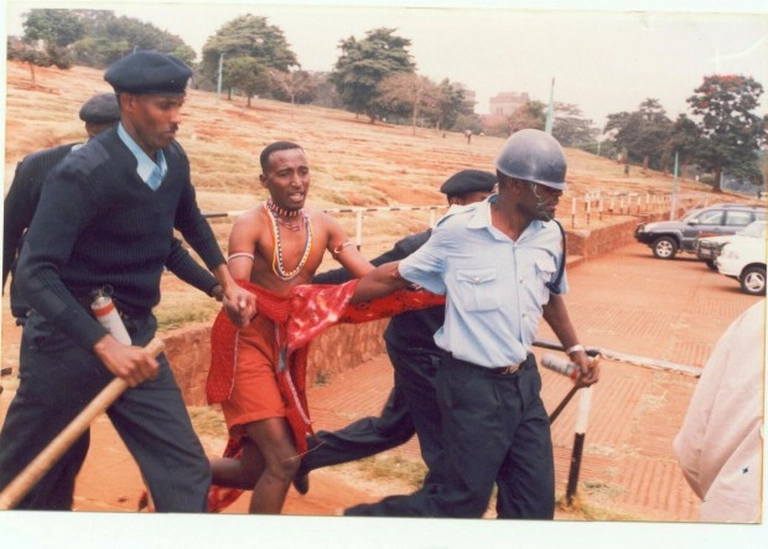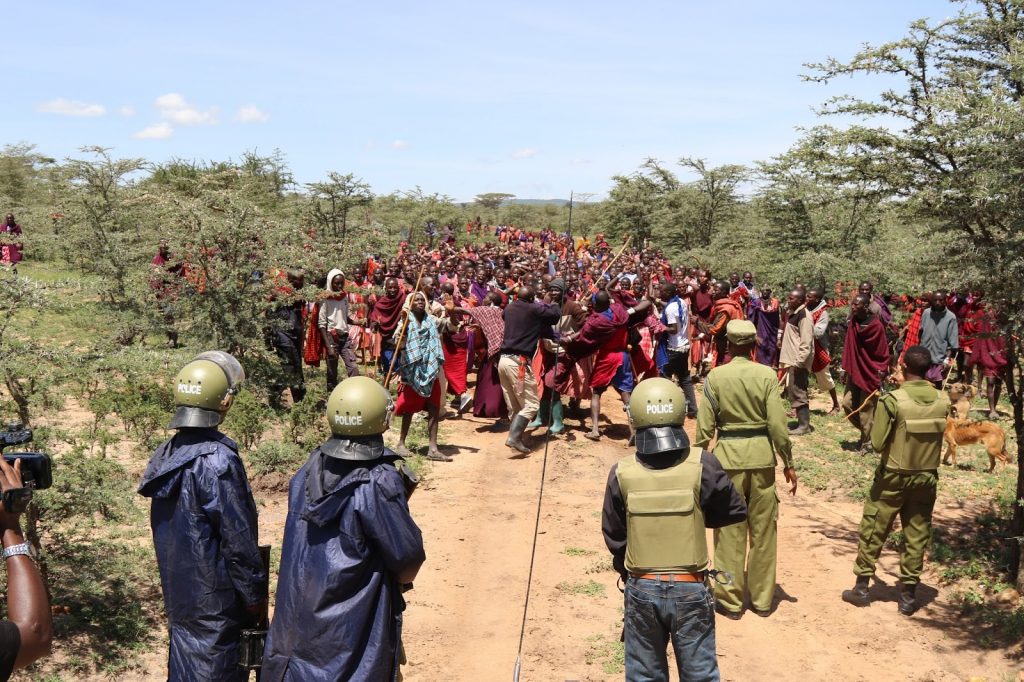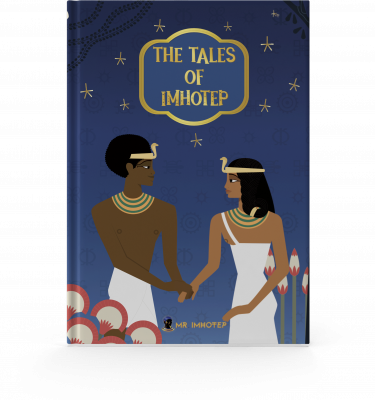Thousands of Maasai pastoralists in northern Tanzania have written to the governments of the United Kingdom, the United States, and the European Union, pleading for assistance in halting plans to evict them from their ancestral land.
The Tanzanian government is threatening to evict more than 150,000 Maasai people because the UN cultural agency Unesco and a safari company want to use the land for conservation and commercial hunting.
“We are asking for your help to let our government know that our land is not for sale and that we will continue to resist this longstanding assault on our rights and the ecological integrity of our land. We are therefore calling on your organization to speak out against these abuses and help us prevent the extinction of our people,” read the letter.
“You can keep providing funding to those responsible for appropriating our land in the name of profit or you can make it clear to our government that you will not stand by as our right to live peacefully on and conserving our land is denied to make space for elite tourism and ‘trophy’ hunting”.
“We have nowhere else to go,” they wrote. “Losing this land will mean the extinction of our community. Over 70% of our homelands have been taken for conservation and investment reasons.”
The Maasai say their lives are at stake because eviction will destroy their ability to keep livestock and provide food for their communities.
The government intends to evict Maasai from the Ngorongoro conservation area, a Unesco World Heritage Site, and Loliondo, near the Serengeti National Park. Both are well-known for their luxury safari tourism. The Tanzanian government and Unesco believe Ngorongoro is overcrowded, threatening wildlife.
For years, violent campaigns to clear areas for tourism have targeted the Maasai, who have lived a semi-nomadic, pastoralist lifestyle for centuries, moving their cattle throughout the area as the seasons change.
“My wife and children feel threatened. The whole community is concerned about what their future will be like,” said one Maasai community leader, who asked not to be named because of the potential backlash from the authorities. “The government is trying to investigate who is behind the protests. Many people are being harassed.”

Eight UN special rapporteurs expressed their concern about the eviction plans in Ngorongoro in February. According to plans drawn up by Tanzania’s national commission for Unesco in 2019 to expand the conservation area, approximately 82,000 Maasai could be relocated over the next five years.
Because of the Unesco listing, the Maasai already have limited access to the land. They are not permitted to grow crops, resulting in food shortages. Drought in the region has exacerbated the situation. The International Federation of Red Cross and Red Crescent Societies reported on Tuesday that prolonged dry spells had resulted in pasture and water shortages for livestock in the northern Maasai region, with over 60,000 animals dying as a result.
Further north, near the Kenyan border, 70,000 Maasai are facing eviction to make way for Otterlo Business Corporation (OBC), a United Arab Emirates-owned hunting company.
Last year, eviction notices were issued, but they were withdrawn after allegations of Maasai intimidation surfaced. The evictions are expected to take place any day now.
“They [the authorities] deny people access to water, electricity. They want to create an uncomfortable situation for the people,” said Denis Moses Oleshangai, a lawyer and resident of Ngorongoro.
“People are worried. They are concerned about the impact of the eviction and how their life will be,” said a Maasai community leader from Loliondo, who also asked not to be named.
Tanzania’s tourism minister, Damas Ndumbaro, stated in February this year that the Maasai had no claim to their homeland because all land belonged to the president.
Anuradha Mittal, executive director of the Oakland Institute thinktank, said: “This is all for conservation, to create these pristine environments for tourists. The treatment of the Maasai population in Tanzania is symptomatic of a colonial approach to conservation and tourism, which neglects the recognition of indigenous rights.”
A Unesco spokesperson said: “Unesco World Heritage Centre has never at any time asked for the displacement of the Maasai people. If nature conservation is an urgent need, Indigenous peoples are also part of the answer: they are key actors and rights-holders in achieving this. Unesco World Heritage Centre and the 1972 convention thus recognise the importance of Indigenous peoples and our practice is to involve everyone in finding a solution where nature wins and people win.”
Requests for comment were not returned by OBC.
The Foreign and Commonwealth Office was contacted for comment.








